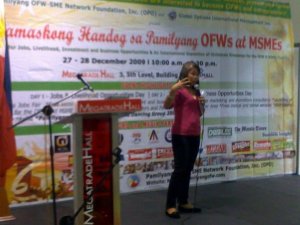Our parents used to tell us: the moment you start earning, buy some jewelry and other properties. You can pawn them whenever you encounter financial difficulties. Mario Lamberte – 1988.
Pawnshops offer financial services known as microlending which is an important source of credit in many developing countries, especially in Asia. Pawnshops fill a void left by the banking system. They provide poor and low-income households with credit that would have not otherwise have been available and increase competition in the credit markets by providing an alternative source of credit for those who are frozen out of loans from banks. This has served as a financial safety net for the poor and low-income households.
Pawnshops can provide these financial services to poor and low-income households for a variety of reasons. One is that pawnshops fall under less regulation than other financial institutions.
Pawnshops used to operate like a sari-sari store with very little government control. In fact the only time these units came into contact with government agencies was when they paid business registration fees and income taxes. They were not even covered by the usury law enacted in 1916. Mario Lamberte – 1988.
Beginning in 1972, The Bangko Sentral ng Pilipinas’ (BSP), known as the Central Bank in 1973.was given the authority and responsibility to regulate pawnshops. Presidential Decree 114 (29 January 1973) and the Central Bank Circular No. 374 (13 July 1973) set out specific regulations covering the operations of pawnshops.
Pawnshops are still among the least regulated businesses that fall under the authority the BSP. Under the BSP‘s regulations pawnshops are authorized to lend, but cannot accept deposits and are required to submit regular financial reports. The BSP has financial audit authority over pawnshops and can inspect book records and general business practices. It also has the authority to sanction a pawnshop.
Although in 2009, the BSP did issue a new, more stringent, set of rules that will govern all pawnshops operating throughout the country. The new rules will replace the existing implementing rules and regulations of Presidential Decree No. 114 also known as the Pawnshop Regulation Act issued in 1973.
The new rules are designed to enhance consumer protection and foster confidence in the pawnshop industry by the pawning public. For instance, proprietors, partners, incorporators, directors, stockholders and officers of pawnshops must meet certain “fit and proper” standards to ensure that pawnshops are owned and run by people without any derogatory record and to promote good governance. Pawnshops are now required to maintain a minimum level of capital or net worth in relation to their loan portfolio as the existing statutory capital of P100,000 has become too small and it is susceptible to the proliferation of “fly-by-night” operators.
Another reason pawnshops can provide these financial services to poor and low-income households is that their loans are backed by hard assets which lowers the transaction cost to the borrower and the lender and eliminates the need to analyze the borrower’s creditworthiness.
Over time the pawn item has changed. In the past, for example, Mario Lamberte noted (1988) that “pawnshops have preferred lees bulky items high-value items like jewelry. With the advent of more competition pawnshops have broadened the type of items they accept as collateral” (page 14). This change continues today with the acceptance of computers, cell phones and other electronic devices as collateral.
Because of the efficiency of pawnshop operations, they have been shown to be a profitable business. A study for the Philippine Institute for Development indicates that efficient management of pawnshops allows 25% of the gross operating income to flow to the bottom line as net profits (Lamberte, 1988).
The pawnshop industry in the Philippines has seen spectacular growth. This growth has largely been attributable to (1) the role that pawnshops serve in filling a demand that is not being filled by the more traditional banking system: It gets credit to those who don’t have access to traditional bank loans and (2) pawnshops operate with large profit margins. This has not gone unnoticed by small entrepreneurs and job seekers in the Philippines as they have flocked to the pawnshop industry.
References
- BSP Approves New Rules for Pawnshops, The Bangko Sentral ng Pilipinas (BSP), May 4, 2009. http://www.bsp.gov.ph/publications/media.asp?id=2063&yr=2009
- Lamberte, Mario. An Analysis of the Role of Pawnshops in the Financial System. Manila: Working Paper Series no. 88-07, Philippine Institute for Development Studies, June 1998, 36 pp. http://www3.pids.gov.ph/ris/wp/pidswp8804.pdf




